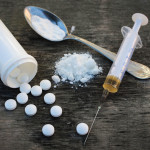Conflicting HIV news arrives from across the pond. First, the good news: In the United Kingdom, the number of new HIV diagnoses has fallen 28% in about four years. Specifically, there were 6,271 new cases in 2015 and 4,484 in 2018, making 2018 the year with the lowest number of new diagnoses since 2000.
This means that the United Kingdom—which includes England, Scotland, Wales and Northern Ireland—is getting closer to the goal of zero new transmissions by 2030.
Public Health England released updated HIV data earlier this month, CNN reports. The decrease in new cases is the result of a nationwide HIV campaign that includes testing, condoms, pre-exposure prophylaxis (PrEP) and treatment.
People living with HIV who take meds and maintain an undetectable viral load cannot transmit the virus via sex, a fact known as undetectable equals untransmittable (U=U).
The concerning news found in the data is that nearly half of the people who tested positive for the virus in 2018 had late-stage HIV, reports CNN, making them 10 times more likely to die within a year compared with people diagnosed early.
In related news, Reuters reports that HIV experts in Europe are sounding the alarm over gay “chemsex” parties, in which men have sex with multiple partners while using drugs. They say the growing popularity of these parties is fueling concentrated epidemics among hard-to-reach groups in cities including London, Amsterdam, Ibiza, Berlin, Kiev and Moscow.
These parties pose a “challenge of proportions we cannot fully comprehend at this time,” José Zuniga, the president of the International Association of Providers of AIDS Care, told attendees at a London conference the group hosted.
Drugs commonly used at the parties include crystal meth, mephedrone and gamma-hydroxybutyric acid, known as GHB. Because the drugs lower inhibitions and increase sexual desire and stamina, chemsex parties can be a perfect storm for the spread of HIV.







Comments
Comments